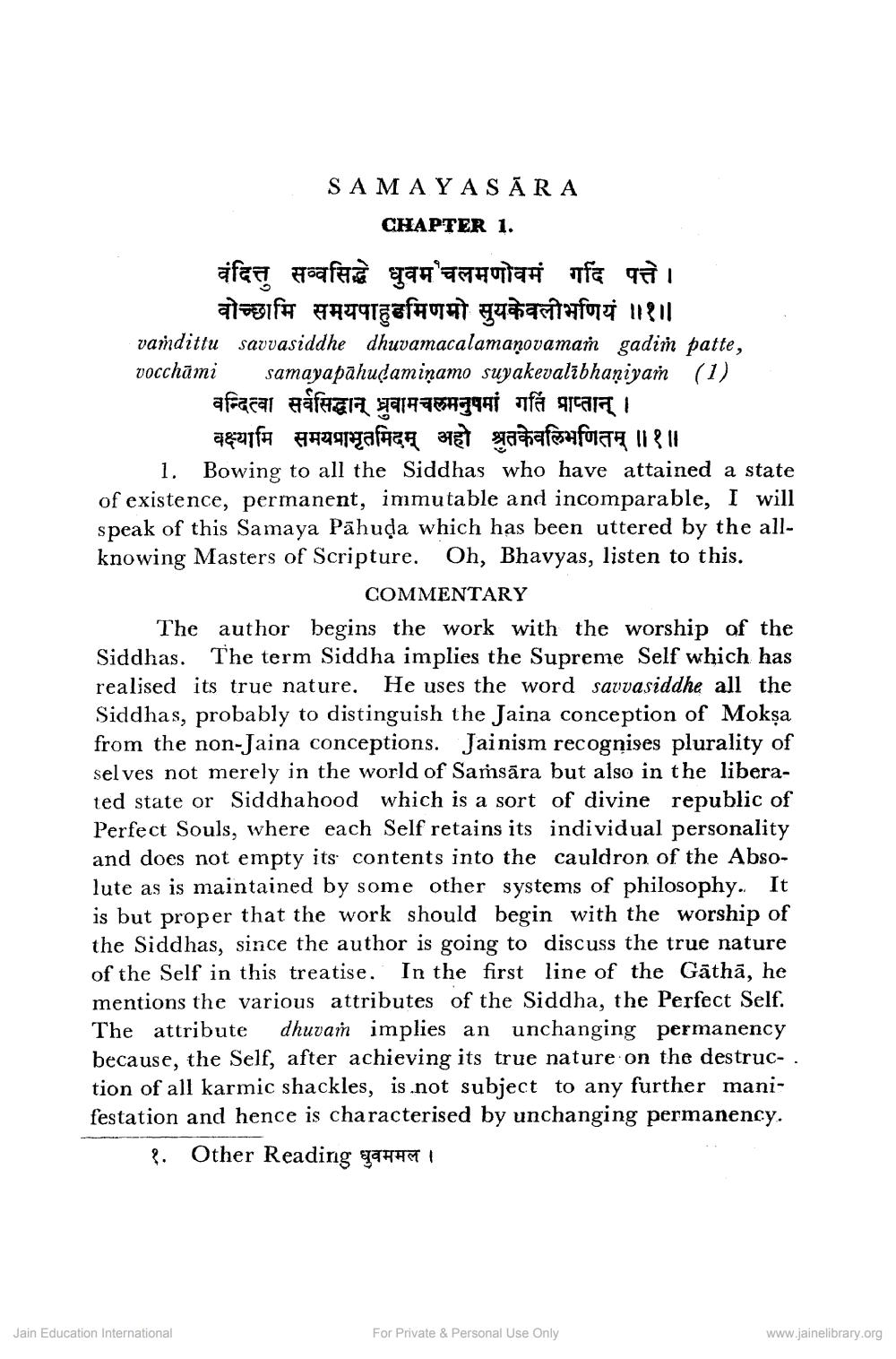________________
SAMAYASĀRA
CHAPTER 1. वंदित्तु सव्वसिद्धे धुवम'चलमणोवमं गदि पत्ते ।
वोच्छामि समयपाहुडमिणमो सुयकेवलीभणियं ॥१॥ vandittu savvasiddhe dhuvamacalamanovaman gadim patte, vocchāmi samayapāhudaminamo suyakevalibhaniyan (1)
वन्दित्वा सर्वसिद्धान् ध्रुवामचलमनुषमां गतिं प्राप्तान् ।
वक्ष्यामि समयमाभृतमिदम् अहो श्रुतकेवलिभणितम् ॥१॥ 1. Bowing to all the Siddhas who have attained a state of existence, permanent, immutable and incomparable, I will speak of this Samaya Pāhuda which has been uttered by the allknowing Masters of Scripture. Oh, Bhavyas, listen to this.
COMMENTARY The author begins the work with the worship of the Siddhas. The term Siddha implies the Supreme Self which has realised its true nature. He uses the word sarvasiddhe all the Siddhas, probably to distinguish the Jaina conception of Mokşa from the non-Jaina conceptions. Jainism recognises plurality of selves not merely in the world of Saṁsāra but also in the liberated state or Siddhahood which is a sort of divine republic of Perfect Souls, where each Self retains its individual personality and does not empty its contents into the cauldron of the Absolute as is maintained by some other systems of philosophy. It is but proper that the work should begin with the worship of the Siddhas, since the author is going to discuss the true nature of the Self in this treatise. In the first line of the Gāthā, he mentions the various attributes of the Siddha, the Perfect Self. The attribute dhuvam implies an unchanging permanency because, the Self, after achieving its true nature on the destruction of all karmic shackles, is not subject to any further manifestation and hence is characterised by unchanging permanency.
१. Other Reading धुवममल ।
Jain Education International
For Private & Personal Use Only
www.jainelibrary.org




